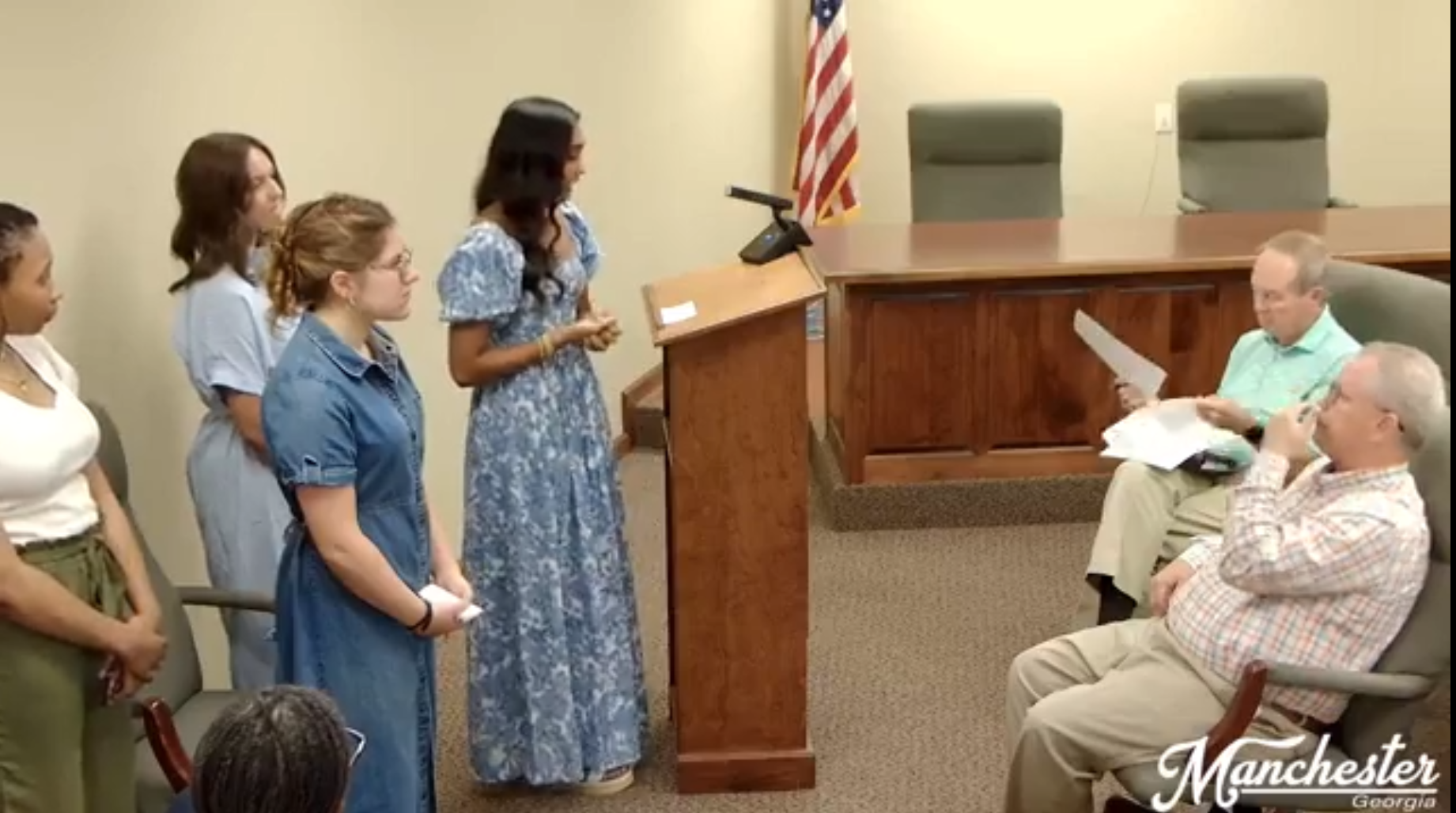Youth Leadership Group Captivates Manchester City Council with Powerful Presentation on Gang Violence and Childhood Trauma
At a recent Manchester City Council work session held on July 30, a group of young leaders from the Meriwether County Youth Leadership Program delivered a deeply impactful presentation on the root causes of gang violence, poverty, and trauma in their community. Their message, centered on Adverse Childhood Experiences (ACEs), left city officials visibly moved and sparked renewed discussions about youth intervention, public policy, and community support.
The students, part of the Class of 2025 Youth Leadership cohort, presented their project titled “Connections Matter,” which was developed in partnership with the Meriwether County Chamber of Commerce, Meriwether County School Board, and the County Extension 4-H Office. Their presentation had previously been showcased at the Georgia Gang Investigators Association conference, where it was met with praise from over 500 professionals.
With a blend of statistics, personal anecdotes, and passionate delivery, the students highlighted how childhood trauma—such as abuse, neglect, incarceration of family members, and community violence—can lead youth into gangs, substance abuse, and cycles of poverty.
“No child wakes up and says, ‘I want to join a gang,’” said student Harmony Porter of Manchester High School. “They wake up saying, ‘I want someone to care.’ Gangs offer a false sense of belonging when home environments fail to provide love, stability, and safety.”
Other students echoed similar sentiments. Tavaria Hill painted a vivid picture of a child struggling to concentrate in school while facing food insecurity and chaos at home. “It’s hard to focus on a math equation when you’re worried if your mom can pay the light bill,” she said.
Vidhi Patel, another presenter, used a powerful comparison between two childhood friends—one raised in a supportive environment and the other in neglect—to illustrate how early support and stability shape lifelong outcomes.
The group urged council members to shift from punitive responses to preventive measures. “We can’t arrest away trauma,” one student said. “Instead of asking ‘What’s wrong with this kid?’ ask ‘What happened to them?’”
At the conclusion of their presentation, the students received a standing ovation, certificates of commendation, and heartfelt thanks from council members. Mayor and council officials acknowledged the critical importance of the issues raised and reaffirmed their commitment to implementing effective youth support programs.
Following the presentation, city leaders turned their attention to housing and planning matters. Vicky Waller, a longtime resident and experienced public housing professional, addressed the council as a nominee for the Manchester Housing Authority Board. She emphasized economic development and transportation access as key to improving housing stability and reducing poverty-driven crime.
Later, the council discussed donating six city-owned lots on Byron Street to the local land bank to support affordable housing. Officials highlighted the strategic benefits of revitalizing blighted properties through partnerships with developers who align with community values and architectural integrity.
In closing, City Manager and council members expressed their gratitude for the students’ courage and insight. “The information you shared is vital,” one council member noted. “You didn’t just educate us—you challenged us to do more.”
As the city moves forward with development and revitalization plans, the voices of its youngest residents have left an indelible mark—one that will guide future policies toward a safer, more compassionate Manchester.
